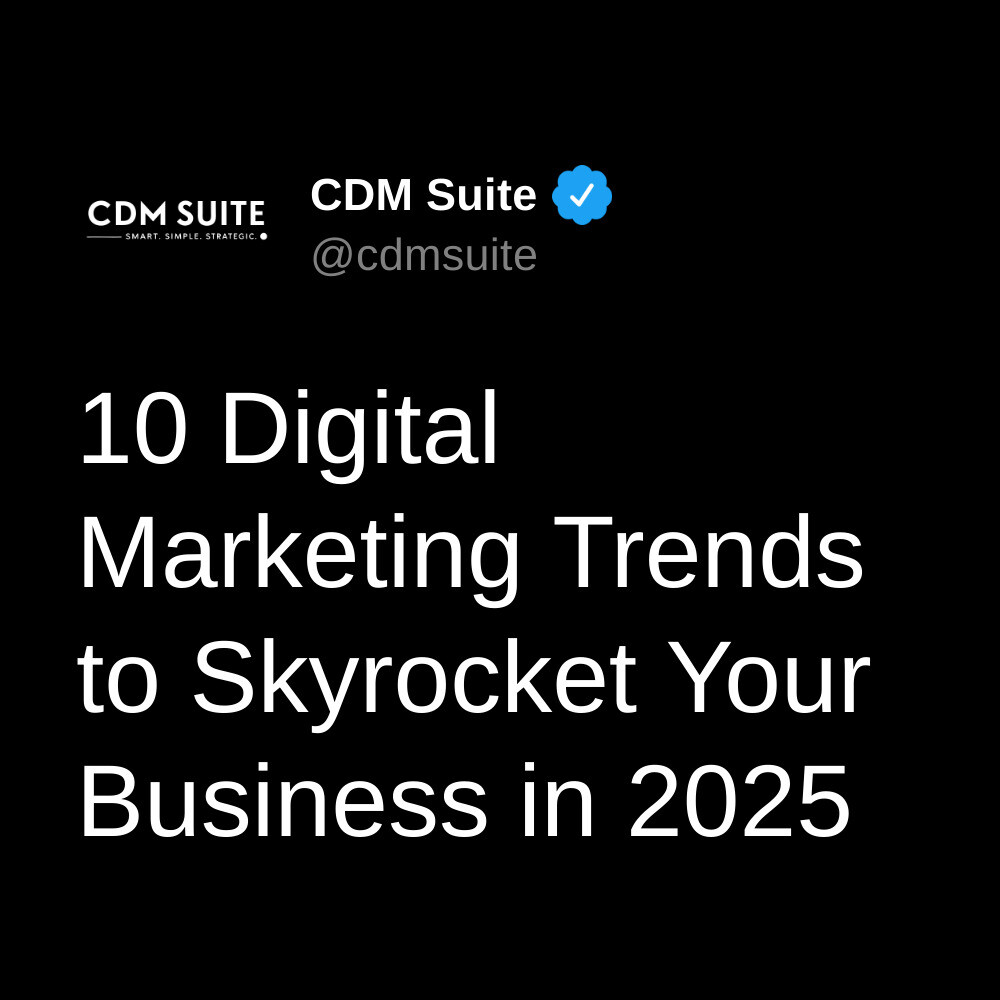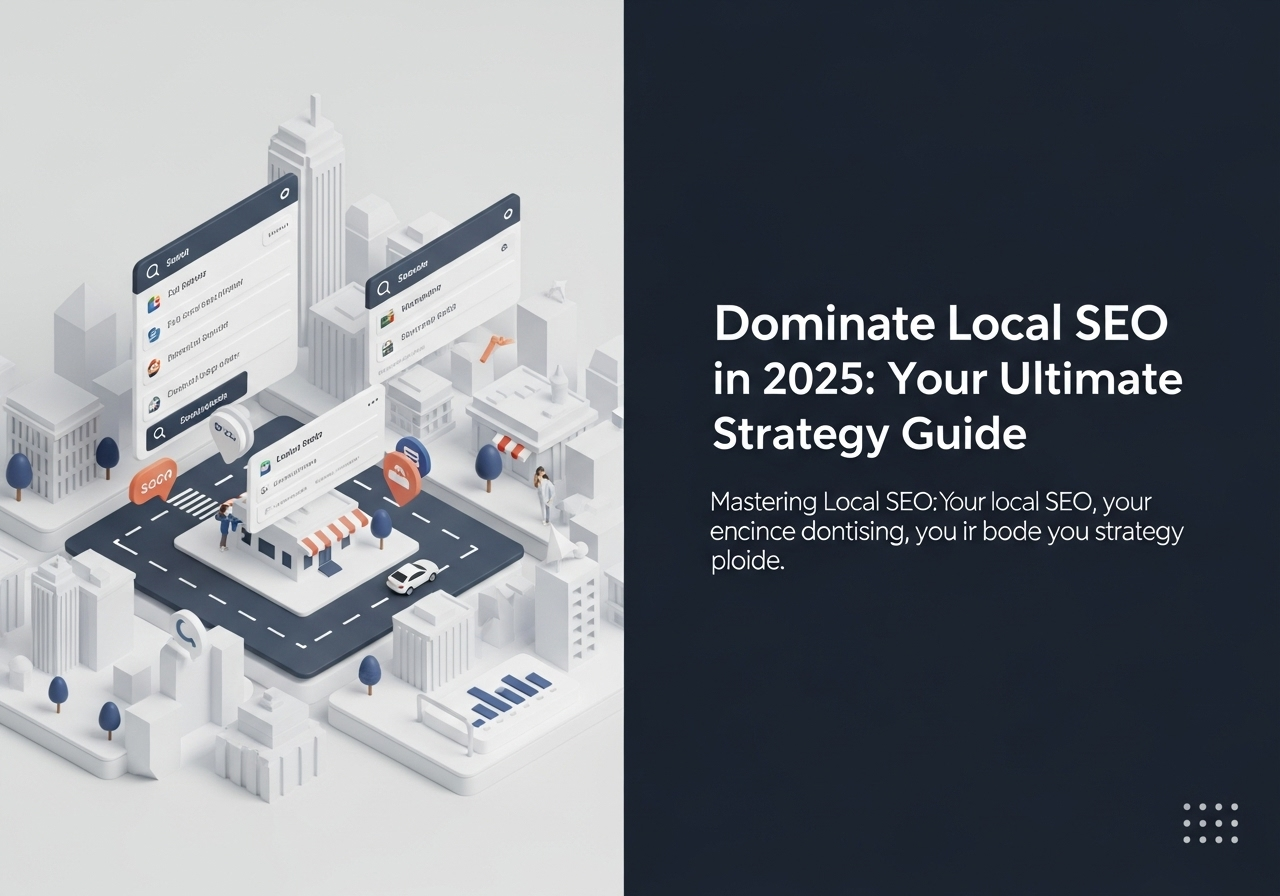Introduction
As we dive into 2025, the digital marketing landscape continues to evolve at breakneck speed. Staying ahead of the curve is crucial for businesses aiming to thrive in this dynamic environment. This post explores the top 10 digital marketing trends that will shape the industry and offers actionable strategies to implement them effectively.
1. AI-Powered Marketing Automation
Artificial Intelligence is revolutionizing marketing automation, enabling personalized customer experiences at scale. From chatbots to predictive analytics, AI is transforming how businesses engage with their audience.
- Strategy: Implement AI-driven chatbots for 24/7 customer support and lead qualification.
- Strategy: Utilize AI for content creation and optimization to improve SEO rankings.
2. Voice Search Optimization
With the rising popularity of smart speakers and voice assistants, optimizing for voice search is no longer optional. Businesses need to adapt their SEO strategies to cater to conversational queries.
- Strategy: Focus on long-tail keywords and natural language in your content.
- Strategy: Create FAQ pages to address common voice search queries in your industry.
3. Video Marketing Dominance
Video content continues to reign supreme, with short-form videos becoming increasingly popular across platforms. Brands that master video storytelling will capture more attention and engagement.
- Strategy: Develop a consistent video content strategy across multiple platforms (TikTok, Instagram Reels, YouTube Shorts).
- Strategy: Invest in live streaming to foster real-time engagement with your audience.
4. Augmented Reality (AR) Experiences
AR is transforming how consumers interact with products and brands. From virtual try-ons to immersive brand experiences, AR is setting new standards in customer engagement.
- Strategy: Develop AR filters or apps that allow customers to visualize products in their own space.
- Strategy: Create AR-powered virtual events or product launches for a unique brand experience.
5. Hyper-Personalization
Consumers expect tailored experiences more than ever. Hyper-personalization leverages data and AI to deliver highly relevant content, products, and services to individual users.
- Strategy: Implement dynamic content on your website that adapts to user behavior and preferences.
- Strategy: Use AI-powered recommendation engines to suggest products or content based on individual user data.
6. Social Commerce Integration
Social media platforms are increasingly becoming shopping destinations. Integrating e-commerce functionality directly into social media experiences is crucial for modern businesses.
- Strategy: Set up shoppable posts and stories on Instagram and Facebook.
- Strategy: Leverage live shopping features on platforms like TikTok and YouTube to drive real-time sales.
7. Privacy-First Marketing
With growing concerns about data privacy and the phasing out of third-party cookies, marketers need to prioritize first-party data collection and transparent data practices.
- Strategy: Develop a robust first-party data strategy through loyalty programs and personalized experiences.
- Strategy: Communicate your data privacy practices clearly to build trust with your audience.
8. Influencer Marketing 2.0
Influencer marketing is evolving beyond mere product endorsements. Authentic, long-term partnerships between brands and influencers are becoming the norm.
- Strategy: Focus on building relationships with micro-influencers who have highly engaged niche audiences.
- Strategy: Co-create content with influencers that aligns with both your brand values and their personal brand.
9. Sustainability-Driven Marketing
Consumers are increasingly making purchasing decisions based on a brand’s environmental and social impact. Sustainability is no longer just a buzzword but a core component of marketing strategies.
- Strategy: Highlight your brand’s sustainability initiatives in your marketing campaigns.
- Strategy: Partner with eco-friendly organizations to enhance your brand’s sustainability credentials.
10. Blockchain for Transparency and Trust
Blockchain technology is making waves in digital marketing by offering unprecedented levels of transparency and security in advertising and customer data management.
- Strategy: Explore blockchain-based advertising platforms to ensure ad delivery and combat fraud.
- Strategy: Use blockchain to create transparent loyalty programs that customers can trust.
Conclusion
As we navigate the exciting digital marketing landscape of 2025, embracing these trends will be crucial for staying competitive. By implementing these strategies, businesses can create more engaging, personalized, and effective marketing campaigns that resonate with their target audience.
Ready to revolutionize your digital marketing strategy? Take our Free 3-Minute Marketing Assessment and get a custom growth plan tailored to your business needs!


